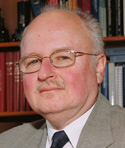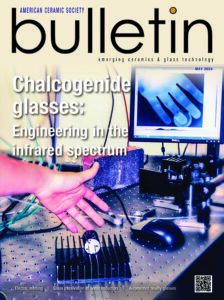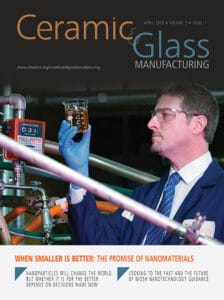 Harry L. Tuller is Professor of Ceramics and Electronic Materials; Department of Materials Science and Engineering, and Head of the Crystal Physics and Electroceramics Laboratory at the Massachusetts Institute of Technology, Cambridge, Massachusetts, USA.
Harry L. Tuller is Professor of Ceramics and Electronic Materials; Department of Materials Science and Engineering, and Head of the Crystal Physics and Electroceramics Laboratory at the Massachusetts Institute of Technology, Cambridge, Massachusetts, USA.
He received B.S. and M.S. degrees in Electrical Engineering and Eng.Sc.D. in Solid State Science & Engineering from Columbia University, New York, NY.
He served as Postdoctoral Research Associate; Physics, Technion, Israel, following which he joined the faculty at MIT in 1975. He has served as Editor-in-Chief for the Journal of Electroceramics (Springer Publ.) since its founding in 1997, was co-founder of Boston MicroSystems, Inc., a pioneer in SiC based MEMS technology, and serves as President of the International Society of Solid State Ionics (2015-2017).
He has published over 445 articles, co-edited 15 books and was awarded 33 patents on topics related to defects, diffusion, and the electrical, electrochemical and optical properties of metal oxides with applications to sensors, fuel cells, photoelectrochemistry, thin film oxides, and MEMS devices.
His non-ACerS honors include: recipient of Fulbright (1989-1990), and von Humboldt Awards (Germany) (1997-2002); Docteur Honoris Causa, University Provence, Marseilles (2004); elected to World Academy of Ceramics (2006); Technices Doctor Honoris Causa, University of Oulu, Finland (2009); Outstanding Achievement Award – High Temperature Division, The Electrochemical Society (2010); Somiya Award for International Collaboration in Materials Research, International Union Materials Research Societies, Japan (2012); Helmholtz International Fellow Award (Germany) (2013); Fellow of The Electrochemical Society (2014); President, International Society of Solid State Ionics (2015);
Honors and awards received from The American Ceramic Society include:
Fellow of The American Ceramic Society –ACerS- (1984); ACerS F.H. Norton Award (2005); ACerS Edward Orton Jr. award (2007); Distinguished Life Member, American Ceramic Society [2016]
His present interests focus on the examination of defects in thin film and nanoionic structures by in-situ electrical and optical means, thin film memory devices, electrochemomechanical effects in fuel cell materials, and catalyst-support interactions.




